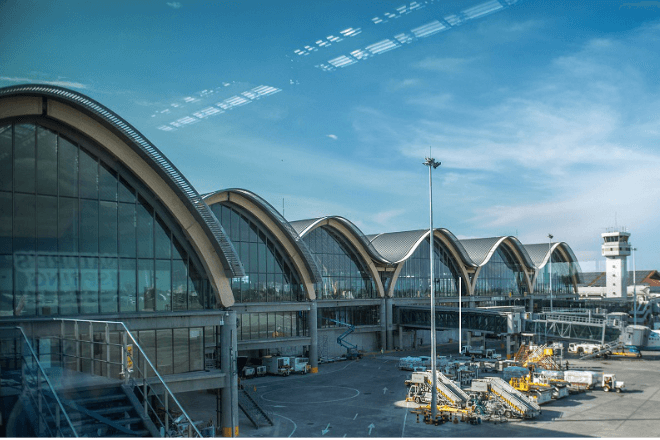
Negotiations for the world’s first bloc-to-bloc air transport agreement have been completed between ASEAN and the European Union (EU).
The agreement will allow airlines of 10 Southeast Asian countries and 27 European countries to fly any number of services between both regions. Airlines will be able to fly up to 14 weekly passenger services and any number of cargo services via and beyond to any third country.
A big boost to COVID-19 recovery efforts
The landmark deal is expected to boost connectivity and economic development in these countries. It will also open growth opportunities for the aviation industry in both regions, which is struggling to recover from the coronavirus disease (COVID-19) pandemic. Both parties said they intend to work toward minimizing disruptions to air services caused by the pandemic.
In 2020, EU was ASEAN’s third largest source of direct foreign investments at $10.5 billion and third largest trading partner at $226.2 billion, says Dato Lim Jock Hoi, the Secretary-General of ASEAN. He says strengthening air connectivity between the two regions would yield for them more economic benefits.
The next step is to submit the ASEAN–EU Comprehensive Air Transport Agreement (AE CATA) for legal scrubbing in preparation for signature by member states.
More than a billion people
Negotiations on the agreement were concluded at the Extraordinary ASEAN–EU Senior Transport Officials Meeting held virtually on June 2.
Sun Chanthol, Chair of the ASEAN Transport Ministers Meeting and Senior Minister and Minister of Public Works and Transport of Cambodia, says improving connectivity will “benefit a population of 1.1 billion people and enable greater business, trade, tourism and people-to-people links between both regions.”
The Association of Southeast Asian Nations, or ASEAN, groups Brunei Darussalam, Cambodia, Indonesia, Lao People’s Democratic Republic, Malaysia, Myanmar, Philippines, and Singapore.
The EU countries are Austria, Belgium, Bulgaria, Croatia, Republic of Cyprus, Czech Republic, Denmark, Estonia, Finland, France, Germany, Greece, Hungary, Ireland, Italy, Latvia, Lithuania, Luxembourg, Malta, Netherlands, Poland, Portugal, Romania, Slovakia, Slovenia, Spain, and Sweden.
A new way of doing business
The ASEAN–EU agreement reflects the latest policy thinking in air transport regulation, including robust fair competition provisions and doing business issues. More importantly, it provides a foundation for closer cooperation between ASEAN and the EU in such areas as aviation safety, air traffic management, consumer protection, and environmental and social matters.
“The conclusion of this first-ever ‘bloc-to-bloc’ air transport agreement marks an important milestone in the EU’s external aviation policy,” says Adina Vălean, the European Commissioner for Transport. “It provides essential guarantees of fair competition for our European airlines and industry, while strengthening reciprocal prospects for trade and investment in some of the world’s most dynamic markets. Importantly, this new agreement also provides us with a solid platform to continue promoting high standards on safety, security, air traffic management, environment and social matters going forward. I am grateful for the constructive approach of all parties involved, which made this historic deal possible.”
The agreement builds on previous initiatives, such as the Enhanced ASEAN Regional Integration Support from the EU (ARISE Plus) program on technical assistance and capacity building; the EU–South East Asia on Cooperation on Mitigating Climate Change impact from Civil Aviation: Carbon Offsetting and Reduction Scheme for International Aviation (EU–SEA CCCA CORSIA), which supports CORSIA implementation; and the EU–South East Asia Aviation Partnership Project (EU–SEA APP).
This article was first published by BIMP-EAGA on 10 June 2021.

